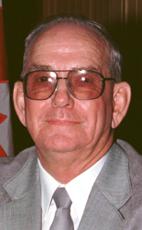Mr. Speaker, although the motion deals with the ethics of the investment of the CPP, for most Canadians and most members of the House when we think of the CPP we think of constituents coming to our offices. These constituents feel they are qualified to reap some of the benefits of the CPP, but then there is the long paper trail that follows after that. I would like to believe that the decisions made as to those who qualify are the same regardless of what province they may reside in.
I have personally experienced this on many occasions. Someone who comes in at 62 years of age is likely to be accepted because they are only three years away from getting the OAS, and then they are disqualified. However, if they are younger people who are totally disabled, at 51 or 52, let us say, I find myself saying to these people, out of pity, that I cannot believe it: they cannot qualify because they are unemployable, but then it starts with papers and doctors, and doctors and papers, and finally there are hearings and so on. It is the most un-Canadian thing that I know of.
I know this is not really the topic, but I would say to my colleague, and to other colleagues in the House too, that maybe this is the time for us to say, number one, we want uniformity and, number two, we want some consistency that has nothing to do with age. When someone is a beneficiary of this program, he or she should be allowed to receive it.
I have insurance on my house. If something happens through a storm or something, I know I am going to get something. People who pay into the CPP and then become disabled do not know, and in many cases they will not receive any assistance.
Perhaps this does not deal directly with the investment part of the CPP. However, as far as Canadians are concerned, what I am speaking about right now is the most important part of this plan.

